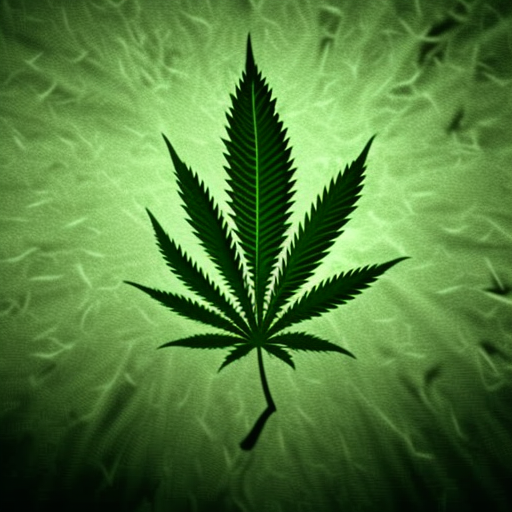 Recent research published in the Journal of Nurse Practitioners has illuminated the potential of medical marijuana as a therapeutic avenue for Appalachian adults grappling with anxiety, depression, insomnia, and chronic pain. The study conducted by a team of nurse practitioners from Clinic 420, in collaboration with a distinguished scholar from Old Dominion University, surveyed 31 patients at a medical marijuana center in rural Virginia. The findings reveal a significant correlation between medical cannabis use and a reduction in prescription drug reliance, alongside notable improvements in overall well-being and symptom severity.
Recent research published in the Journal of Nurse Practitioners has illuminated the potential of medical marijuana as a therapeutic avenue for Appalachian adults grappling with anxiety, depression, insomnia, and chronic pain. The study conducted by a team of nurse practitioners from Clinic 420, in collaboration with a distinguished scholar from Old Dominion University, surveyed 31 patients at a medical marijuana center in rural Virginia. The findings reveal a significant correlation between medical cannabis use and a reduction in prescription drug reliance, alongside notable improvements in overall well-being and symptom severity.
The study’s methodological rigor involved a comprehensive assessment of various metrics, including prescription medication use, general health status, quality of life, medical cannabis knowledge, condition severity, and health beliefs. Patients surveyed were exclusively adults aged 18 and older from federally designated Appalachian regions, specifically those utilizing cannabis for chronic pain, insomnia, anxiety, or depression. Participants reported an array of health outcomes post-cannabis usage, with a significant 28% indicating improved health and 57% noting enhanced quality of life.
The report underscores an observable trend: “Prescription medication use decreased significantly after medical cannabis use.” The specific symptom relief noted was particularly pronounced, with 59% of respondents reporting diminished anxiety and 53% experiencing less severe insomnia. These findings align with the growing body of literature suggesting medical marijuana’s efficacy in ameliorating symptoms associated with mental health disorders and chronic pain.
Subjective feedback from participants further corroborated the quantitative data. Many expressed profound relief, with patients reporting improved sleep patterns, reduced feelings of depression, and a marked decrease in anxiety-related panic attacks. One respondent emphasized their newfound ability to manage narcolepsy with minimal daytime napping, while others articulated relief from persistent nausea and chronic pain, effectively transitioning off narcotic medications. The testimonials provide compelling qualitative evidence supporting the study’s conclusions about the therapeutic benefits of cannabis.
The implications of these findings are particularly salient within the Appalachian context, where socio-economic challenges exacerbate health disparities. Notably, the region is characterized by a poverty rate of approximately 20%, and many households face limited access to healthcare resources, including internet connectivity for educational purposes. The study highlights that in 2021, the mortality rate for diseases of despair—such as suicides, alcohol-related liver diseases, and overdoses—was 43% higher among Appalachian residents compared to non-Appalachian regions. This demographic data underscores the urgent need for alternative treatment modalities, such as medical cannabis, to address the escalating public health crisis.
In light of the promising results, the authors advocate for increased education regarding medical cannabis among healthcare providers. The research indicated that primary sources of cannabis information for patients were nurse practitioners, family members, and doctors, with 55%, 45%, and 42% of respondents citing these sources, respectively. Contrarily, only a minimal percentage (13%) reported relying on social media for such information. Enhanced knowledge and training could empower healthcare providers to confidently discuss the benefits and risks of medical cannabis with patients, potentially facilitating better patient outcomes.
Another critical aspect addressed in the study is the financial burden associated with obtaining a medical cannabis certificate in Virginia, which can be prohibitive for patients, particularly in economically disadvantaged areas like Appalachia. The average household income in this region is approximately $10,000 lower than in other rural areas across the United States, posing a significant barrier to access. The study argues that by reducing dependency on prescription medications, medical cannabis could not only improve individual health outcomes but also alleviate the broader public health crisis associated with prescription drug over-reliance.
The findings of this study contribute to the growing body of evidence supporting the therapeutic use of medical marijuana for mental health and chronic pain management. As healthcare continues to evolve, integrating medical cannabis into treatment regimens for conditions such as anxiety, depression, insomnia, and chronic pain may offer a viable alternative for individuals seeking relief. The call for better education and awareness among healthcare providers is essential, as it could lead to more informed patient-provider discussions and potentially transform the therapeutic landscape for Appalachian adults facing mental health and chronic pain challenges. Further research is warranted to expand on these initial findings, ensuring that the benefits of medical marijuana are maximally leveraged to improve health outcomes in this underserved population.

